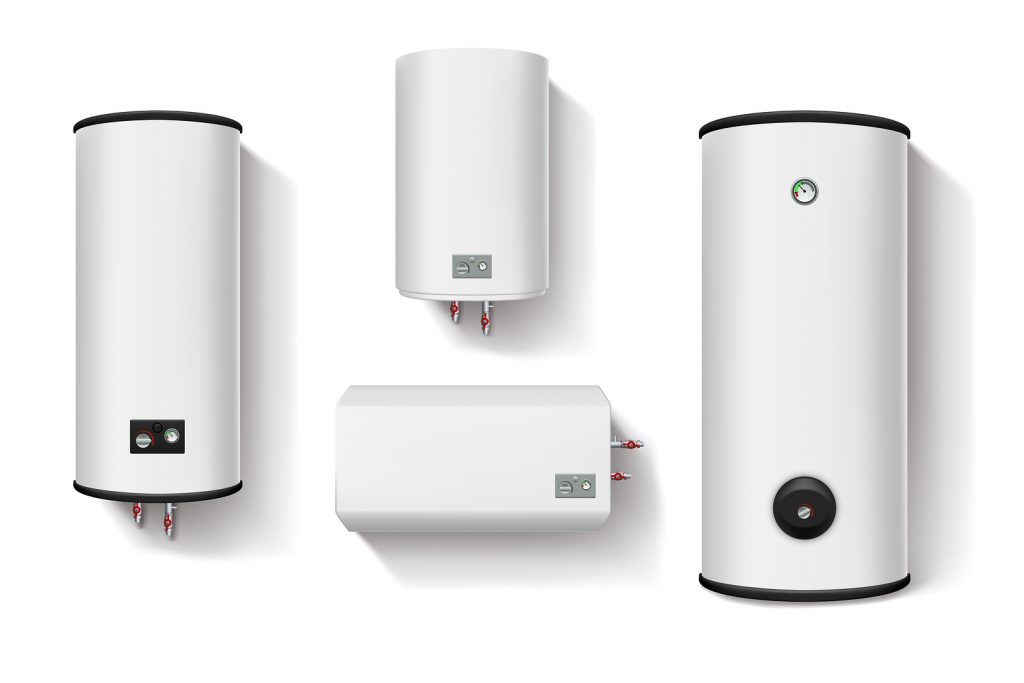Are you in the market for a new water heater? There are several things you’ll want to consider – including how much hot water you use, how much you want to pay, and how important energy efficiency is for your budget.
There are three basic types of water heaters available, and each has its own advantages.
Storage tank water heaters
Storage tank water heaters are the most commonly installed. They work by heating water using electric or gas energy, and then storing the heated water inside an insulated tank. The water comes through a pipe at the tope of the water heater tank on demand (when needed) and reheats a new supply to replenish the tank. Generally, heating with natural gas is generally less expensive than heating with electricity. The downside is that the natural gas units are usually more expensive upfront. The life expectancy of a storage tank water heater is approximately 10 years if you follow the manufacturer’s recommendations.
Tankless water heaters
If your household isn’t large and doesn’t require huge amounts of hot water on demand, a tankless water heater might be a good option. Instead of heating and storing water in a big tank, these models work by heating water as you need it, utilizing heating coils. It’s a far more energy-efficient method, but the downside is that they provide a smaller flow of hot water per minute. If your home is set up with natural gas, it’s easy to install a tankless water heating system. If you have an electrical system, it will require upgrades that can be expensive. However, these systems generally have a life expectancy of about 20 years.
Hybrid water heaters
Hybrid water heaters heat the water by transferring heat from the air into the water – much the same way a heat pump works. The equipment to do this requires more physical space and costs more to install initially, but is much more energy efficient than traditional water heaters, generating significant savings over its lifetime. It should pay for itself within three years – and has a general life expectancy of about 15 years.
You’ll want to consider several other things when buying a new water heater, including:
- Warranty
- Materials
- Digital displays
How green is the machine?
As you consider whether to go with a storage tank, tankless model, or a hybrid water heater, you can calculate what your energy costs will be. The U.S. Department of Energy offers a guide to help determine the energy costs related to each.
For more information, contact a trusted HVAC/plumbing professional to go over the options and decide which is best for your lifestyle and budget.

